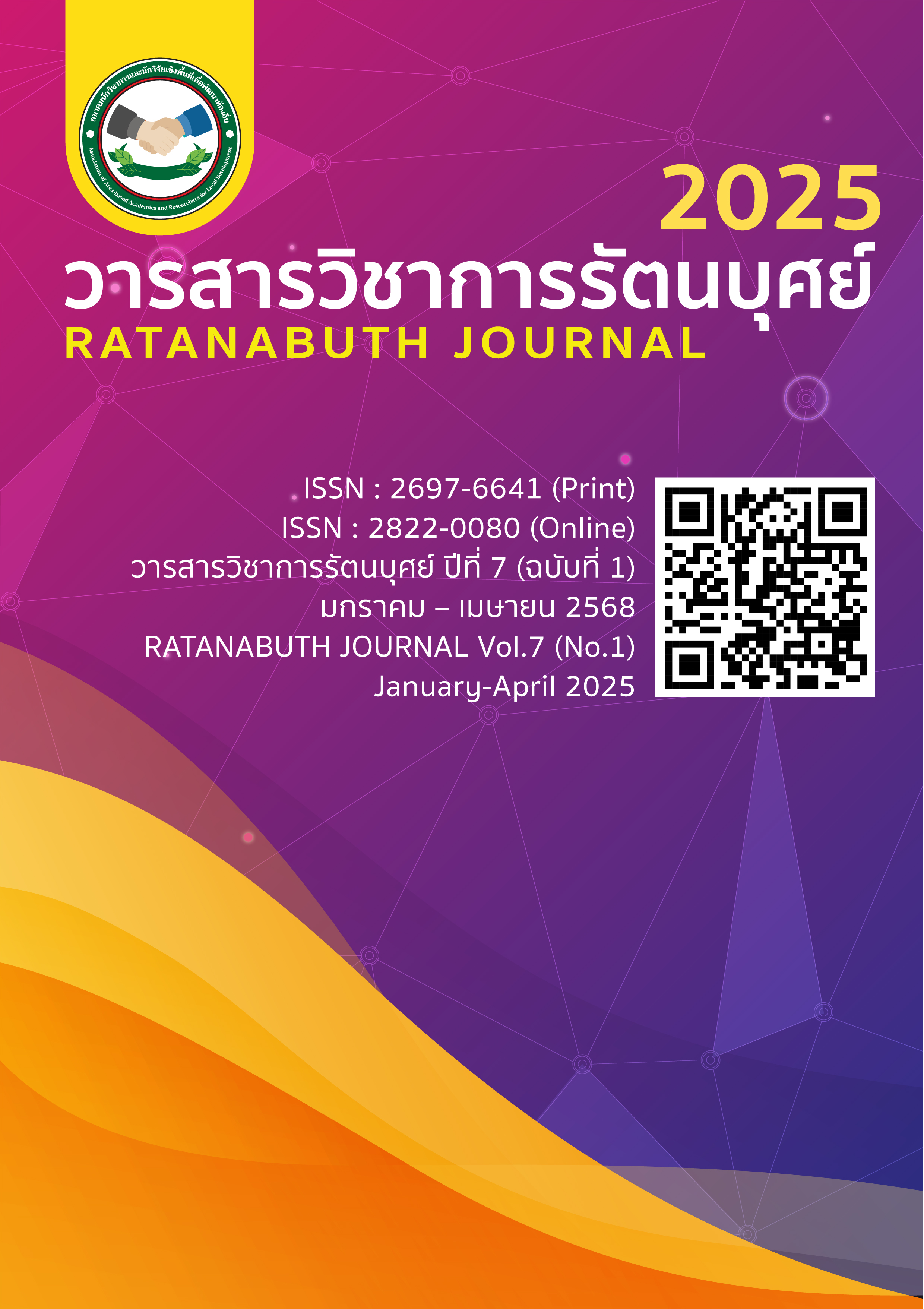The Integration of Four Principles of Sangahavatthu to Enhancing Leadership of Administrators and Personnel of Local Government Organization, Pathumrat District, Roi Et Province The Integration of Four Principles of Sangahavatthu to Enhancing Leadership of Administrators and Personnel of Local Government Organization, Pathumrat District, Roi Et Province
Main Article Content
Abstract
Leadership of administrators is a key factor influencing the success of organizational management. Leadership reflects the efficiency and effectiveness of operations, as well as the ability to manage personnel to achieve full cooperation. Administrators must utilize knowledge and skills to solve problems and adapt to changes effectively. This study aimed to examine the level of integration of the Four Principles of Sangahavatthu in enhancing leadership among administrators and personnel of local administrative organizations in Pathumrat District, Roi Et Province. It also aimed to compare the integration of these principles across personal factors and provide recommendations for implementation. The research employed a quantitative approach, with a sample of 254 respondents. Data were collected using a questionnaire with a reliability coefficient of .94 and analyzed using descriptive statistics, including frequency, percentage, mean, and standard deviation, as well as hypothesis testing with t-tests and F-tests.
The findings revealed that: 1) The overall integration of the Four Principles of Sangahavatthu in enhancing leadership was at a high level ( = 4.22, S.D. = 0.70), with all aspects rated highly. 2) Comparison by gender, age, education level, and position showed no overall significant differences, except for support and assistance to others, which revealed statistically significant differences at the .05 level. 3) Recommendations include providing opportunities for personnel to fully showcase their abilities, practicing ethical leadership, involving stakeholders in policy and operational planning, participating in problem-solving and public service oversight, ensuring transparent communication, inspiring personnel, and promoting the use of information technology to enhance management efficiency.In conclusion, integrating the Four Principles of Sangahavatthu plays a crucial role in fostering leadership that contributes to sustainable organizational development.
Article Details

This work is licensed under a Creative Commons Attribution-NonCommercial-NoDerivatives 4.0 International License.
References
จิดาภา เร่งมีศรีสุข. (2560). พุทธภาวะผู้นำของผู้บริหารองค์กรปกครองท้องถิ่นเพื่อสร้างการมีส่วนร่วมเชิงบูรณาการในจังหวัดพระนครศรีอยุธยา. พระนครศรีอยุธยา: มหาวิทยาลัยเทคโนโลยีราชมงคลสุวรรณภูมิ.
บุญชม ศรีสะอาด. (2560). การวิจัยเบื้องต้น (พิมพ์ครั้งที่ 10). กรุงเทพฯ: สุวีริยาสาส์น.
พระเทพดิลก (ระแบบ ฐิตญาโณ). (2544). ธรรมปริทรรศน์ (พิมพ์ครั้งที่ 4). กรุงเทพฯ: มหามกุฏราชวิทยาลัย.
พระธรรมกิตติวงศ์ (ทองดี สุรเตโช). (2548). พุทธศาสนา/พจนานุกรม (พิมพ์ครั้งที่ 1). กรุงเทพฯ: เลี่ยงเชียง.
วรภาส ประสมสุข, & นิพนธ์ กินาวงศ์. (2550). หลักการบริหารการศึกษาตามแนวพุทธธรรม.วารสารศึกษาศาสตร์ มหาวิทยาลัยบูรพา, 18(2), 105.
วุฒิสาร ตันไชย. (2558). การสังเคราะห์ข้อเสนอการกระจายอำนาจและการปกครองท้องถิ่นเพื่อการปฏิรูปโครงสร้างการปกครองท้องถิ่น: การปกครองท้องถิ่นที่เสริมสร้างประชาธิปไตยท้องถิ่นและความเข้มแข็งชุมชน. กรุงเทพฯ: สถาบันพระปกเกล้า.
สำนักบริหารการทะเบียน กรมการปกครอง กระทรวงมหาดไทย. (2566). จำนวนประชากร: ข้อมูลประชากรอำเภอปทุมรัตต์ จังหวัดร้อยเอ็ด (ธันวาคม 2566). สืบค้นเมื่อ 2 สิงหาคม 2567 จาก https://www.dopa.go.th.
Krejcie, R. V., & Morgan, D. W. (1970). Determining sample size for research activities. Educational and Psychological Measurement, 30(3), 607–610. https://doi.org/10.1177/001316447003000308


